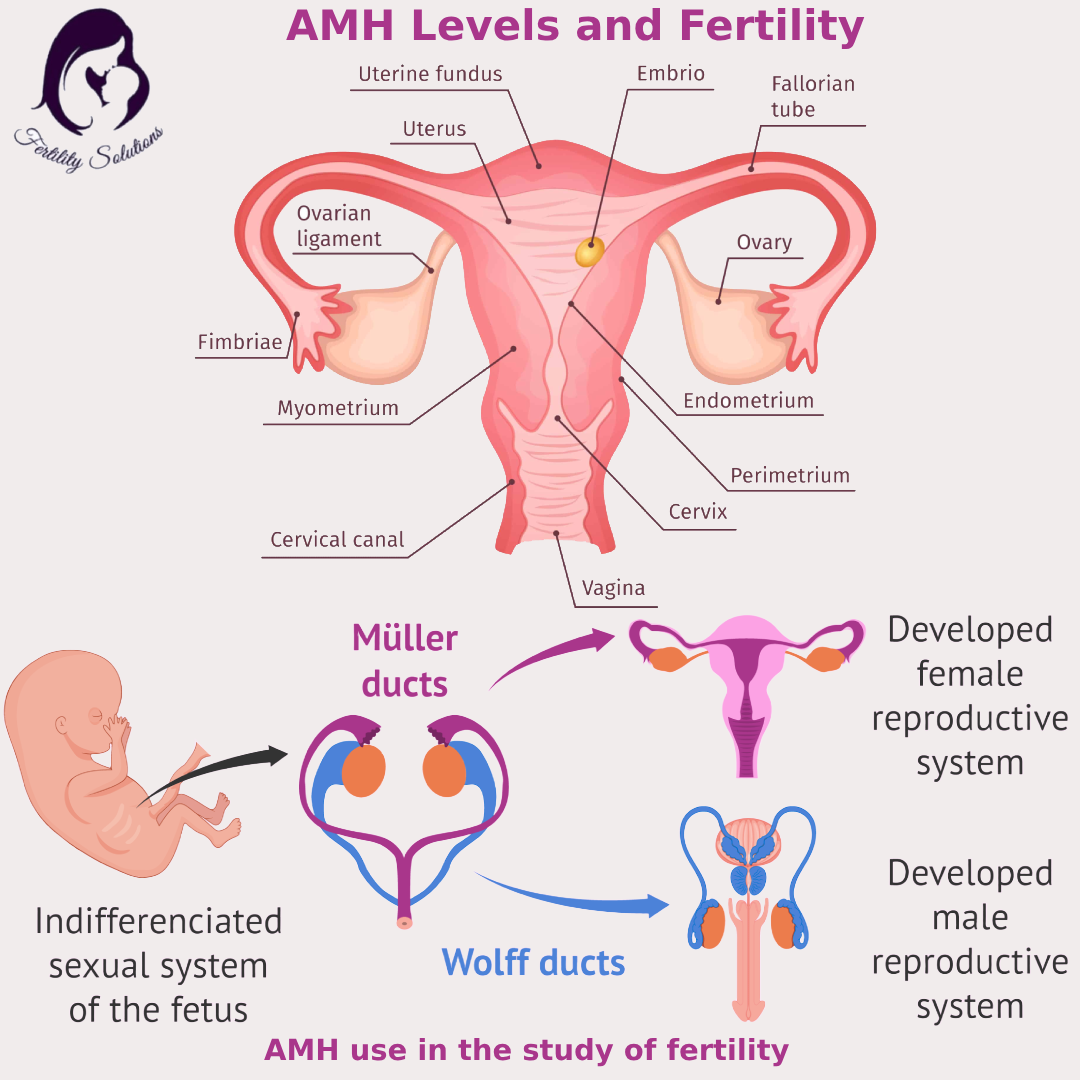Role of AMH Value in Infertility
amrtiyaayuclinic@gmail.com
Dec 29, 2024 06:16 PM
The concept of infertility (Vandhyatva) is rooted in the balance of doshas (Vata, Pitta, Kapha), proper functioning of the reproductive system, and the overall health of the body and mind. While Anti-Müllerian Hormone (AMH) is a modern medical marker, Ayurveda interprets infertility through its traditional framework. Here's how AMH might align with Ayurvedic concepts:
AMH and Its Role in Modern Medicine
- AMH is a marker of ovarian reserve, indicating the number of eggs a woman has left.
- Low AMH levels may suggest diminished ovarian reserve, a condition often linked to difficulty in conception.
- High AMH levels are sometimes associated with conditions like polycystic ovary syndrome (PCOS).
Ayurvedic Perspective on AMH and Infertility
Although AMH is not explicitly discussed in Ayurvedic texts, its implications can be connected to Ayurvedic principles:
-
- In Ayurveda, the reproductive tissues (Shukra Dhatu) are crucial for fertility. A decline in AMH may reflect depletion or imbalance in the quality and quantity of Shukra Dhatu.
- Factors like poor diet, stress, and imbalanced doshas can impair Shukra Dhatu, analogous to diminished ovarian reserve.
- Low AMH and issues like poor follicular development are often linked to Vata aggravation. Excessive Vata may lead to dryness, depletion, and irregular menstrual cycles.
- High AMH levels in PCOS may relate to Kapha dominance (leading to cyst formation) and Pitta imbalance (inflammation and hormonal disturbances).
- In Ayurveda, aging is associated with the natural dominance of Vata dosha, which can reduce the vitality of Shukra Dhatu and ovarian health.
-
Ovarian Reserve and Shukra Dhatu
-
Vata Dosha Imbalance
-
Kapha and Pitta Dosha Imbalance
-
Age and Ovarian Health
Ayurvedic Management for Infertility Linked to AMH
Ayurveda provides holistic approaches to manage infertility, which could complement modern interventions for low or high AMH levels:
-
- Consume nutrient-dense foods that support Shukra Dhatu, such as ghee, milk, almonds, sesame seeds, and fruits like pomegranate.
- Avoid processed, spicy, and overly dry foods that aggravate Vata.
- Practice stress management through meditation, yoga, and pranayama. Stress is a known factor affecting ovarian health.
- Follow a balanced daily routine (Dinacharya) to maintain dosha equilibrium.
- Herbs like Ashwagandha, Shatavari, and Guduchi nourish and rejuvenate Shukra Dhatu.
- Dashamoola and Triphala may help in balancing doshas and improving overall reproductive health.
- Detoxification treatments like Virechana (purgation) and Basti (medicated enemas) can help balance doshas and enhance fertility.
- Uttarbasti, a specialized treatment, is recommended for uterine health.
- Rejuvenation therapies improve overall vitality and slow down age-related decline in ovarian reserve.
-
Dietary Modifications (Ahara)
-
Lifestyle Changes (Vihara)
-
Herbal Remedies (Aushadhi)
-
Panchakarma Therapy
-
Rasayana Therapy
Integration with Modern Medicine
Ayurveda emphasizes improving the body's natural ability to conceive. For conditions like low AMH, Ayurvedic therapies can be used alongside Assisted Reproductive Technologies (ART) to improve outcomes. Always consult both an Ayurvedic practitioner and a fertility specialist to create a tailored approach.
